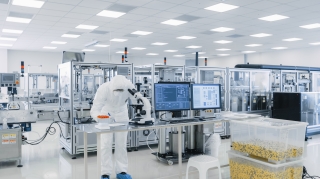
By Ajay Agrawal, John McHale, Alexander Oettl
Abstract
New product innovation in fields like drug discovery and material science can be characterized as combinatorial search over a vast range of possibilities. Modeling innovation as a costly multi-stage search process, we explore how improvements in Artificial Intelligence (AI) could affect the productivity of the discovery pipeline in allowing improved prioritization of innovations that flow through that pipeline. We show how AI-aided prediction can increase the expected value of innovation and can increase or decrease the demand for downstream testing, depending on the type of innovation, and examine how AI can reduce costs associated with well-defined bottlenecks in the discovery pipeline. Finally, we discuss the critical role that policy can play to mitigate potential market failures associated with access to and provision of data as well as the provision of training necessary to more closely approach the socially optimal level of productivity enhancing innovations enabled by this technology.
Download the full working paper here.











